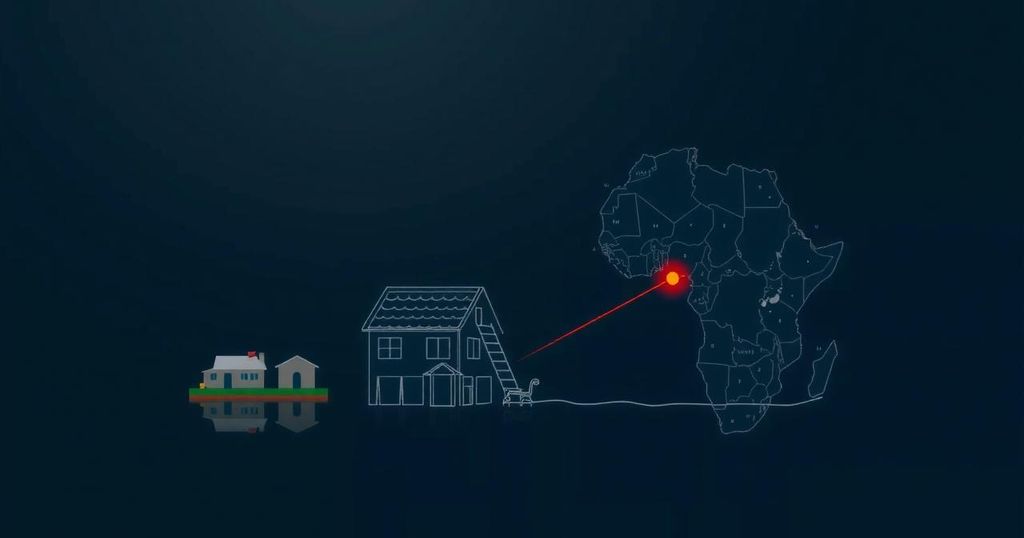Severe Flooding Crisis: Millions Affected Across Chad, Nigeria, and Cameroon
Recent severe flooding in Chad, Nigeria, and Cameroon has affected over 2.7 million people. The floods have submerged homes and farms, raising urgent humanitarian needs. In Chad alone, flooding has resulted in over 500 fatalities and significant agricultural losses amid existing food insecurity. Nigeria and Cameroon face similar crises, with calls for immediate aid and intervention. Experts emphasize the increased frequency of such climate-related disasters and the pressing need for humanitarian support to meet basic necessities.
Severe flooding has recently affected millions across Chad, Nigeria, and Cameroon due to torrential downpours, raising significant concerns regarding food security and humanitarian needs. In total, over 2.7 million individuals have suffered due to this environmental calamity, with Chad being the most affected, where 1.7 million people have faced displacement and destruction. The floods have submerged homes and farmlands, exacerbating existing vulnerabilities in a region already struggling with food insecurity. In Chad, flooding conditions began at the end of July and have since resulted in substantial casualties and losses, including the destruction of approximately 210,000 homes and 880,000 acres of cultivable land. Currently, at least 3.4 million individuals in Chad experience acute food insecurity. According to Gusatve Gnagny, Country Director at Action Against Hunger in Chad, “The affected populations are facing critical needs for food, drinking water, shelter, health, and protection.” In Nigeria, extensive flooding has impacted multiple states, including Borno and Adamawa, where tens of thousands are now without adequate shelter or food. This flooding has intensified the already critical food insecurity that affects over 32 million Nigerians. Thierno Samba Diallo, Country Director for Action Against Hunger in Nigeria, stated, “The floods have damaged over 300,000 acres of farmland in Nigeria.” Cameroon is also experiencing severe repercussions from the flooding, particularly in the Far-North region, where vast areas of crops have been lost and infrastructure has collapsed. Pascal Maillard, Country Director in Cameroon, emphasizes the urgency of the situation, noting that “the general mobilization of the humanitarian community and donors is vital; the emergency is here.” The overarching theme of this crisis is the increasingly frequent climatic shocks impacting these nations, significantly affecting agriculture and livelihoods which, prior to this flooding, was already fragile. With existing humanitarian needs coupled with post-disaster recovery, immediate support and funding are critical for these affected populations.
The region of Central and East Africa is currently facing one of its most severe flooding crises, largely attributed to intense rainfall driven by climate change. This has resulted in widespread devastation across several countries, prompting urgent humanitarian responses. The severe flooding has not only destroyed homes but also decimated agricultural land, worsening food insecurity in areas where millions were already struggling to meet their basic needs. This article outlines the current situation in Chad, Nigeria, and Cameroon, examining the causes, impacts, and the critical need for humanitarian response to these alarming conditions.
In conclusion, the recent flooding across Chad, Nigeria, and Cameroon has resulted in devastating effects that jeopardize millions of lives due to food insecurity, loss of homes, and infrastructure. The humanitarian crisis requires immediate action, with reports indicating that relief efforts necessitate significant funding to adequately address the critical needs of affected populations. As such, a concerted effort from the international community alongside the residents is imperative for recovery and long-term resilience against future climatic shocks.
Original Source: www.actionagainsthunger.org




Post Comment